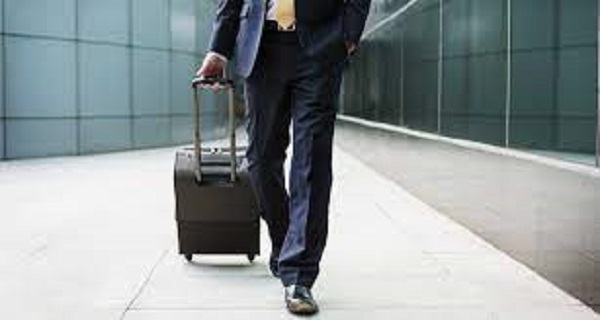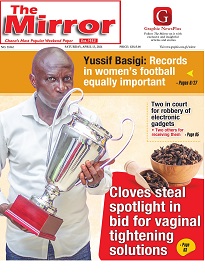The Mirror's Health , Lifestyle and Fashion

Tourism, business traveller
The affair he comes to conduct could be a feasibility study, a market survey or a conference. Other business tourists come in to escort goods or negotiate deals.
Advertisement
For some schools of thought, classifying such people as tourists undermines the very concept of tourism. The argument is advanced that tourism is essentially recreational.
Thus, whatever engenders a tourism trip should have a ‘getting away from it all drive.’ In other words, the relaxation component in a trip’s motive is essential to qualify as tourism related.
The then International Union of Official Travel Organisations (IUOTO), later to be known as the World
Tourism Organisation (WTO) and now the United Nations World Tourism Organisation (UNWTO) outlined the definition of a traveller as: “any person visiting a country other than in which he has his usual place of residence for any reason other than following an occupation remunerated from within the country visited”
This definition has served as a point of reference to many countries in determining who a tourist is. The UNWTO also spells out the purposes for the travel as: leisure, recreation, holiday, health, study, religion, business, visiting friends and family (VFR), etc.
A key consideration in the definition is that the visitor should not be paid by the country visited during the course of his or her stay.
To illustrate, should Julian Nagelsmann of Bayern Munich ever become coach of the Black Stars, he cannot be considered a tourist because he came here to work. But also, and more importantly, he is being paid by the state.
On the contrary, if Julian Nagelsmann is briefly here as part of a German government’s technical assistance to Ghana, he qualifies to be considered a type of tourist.
From our earlier breakdown of types of tourists, it becomes clear that the purpose of tourism-related visits can be anything from health to sports. Why then is the business traveller the only one who seems to bear the brunt of ‘‘not really a tourist’’?
First, the business traveller is not ordinarily conspicuous. One is not likely to bump into business traveller on the streets of say, Axim or Hohoe or Bolgatanga. Such a tourist would more likely be a backpacker.
The backpacker is the tourist who chooses to go on a low budget. He aims to experience the people and places as much as he can. The backpacker is the one who will share a ‘‘trotro’’ ride and have lunch at the chop bar.
In contrast, the business traveller is a big exponent of what is known as urban tourism (or MICE which we shall discuss at another time). Basically, he is about town on business. The contacts, services and infrastructure that he requires are usually only available in the cities. The business traveller’s schedule is made up of appointments, industrial routines, transferring funds and the like.
Another reason is that the business traveller may have a shorter length of stay compared to other types of visitors. However, it is also important to note that the business traveller may visit a country more regularly than other types of tourists. The holiday visitor, for instance, may only visit during his annual holiday.
A key argument in support of the business traveller as a tourist is that he patronises the same services and facilities as other tourists. He uses travel agents, airlines, and stays in a hotel. The business traveller dines in the restaurant and when his schedules allow, he also goes to the beach and night club. In a sense, therefore, it becomes difficult to separate the business elements from the leisure element of his visit.
To understand the business traveller it is helpful to focus on his chief characteristics. This is the fact that he is a big spender. Unlike other tourists, he usually has all the expenses of his travel paid for by corporate interests.
Although his expenditure is usually limited to big towns, it is quite significant to the larger economy in the long run.
Also, another good thing for the economy is that it is the business traveller who brings in investments. Most investors first come in as business tourists.
Because money is not really a problem, the business traveller flies business or first class. He also lodges in luxurious, star rated hotels. As a matter of policy, most organisations will not settle for less for their business executives.
Another good thing is that the business traveller books his flight and hotel accommodation in advance, something that is very good for hoteliers, transporters, tour operators and suppliers.
The business traveller is also less sensitive to COVID-19 and Ebola scare, price hikes or fluctuations in foreign exchange rates. Even in times of political unrests or natural disasters - which normally frightens other visitors- the business traveller is on target. If he (or she) must deliver, he arrives in a country determined to take care of business, as usual.
[email protected]




